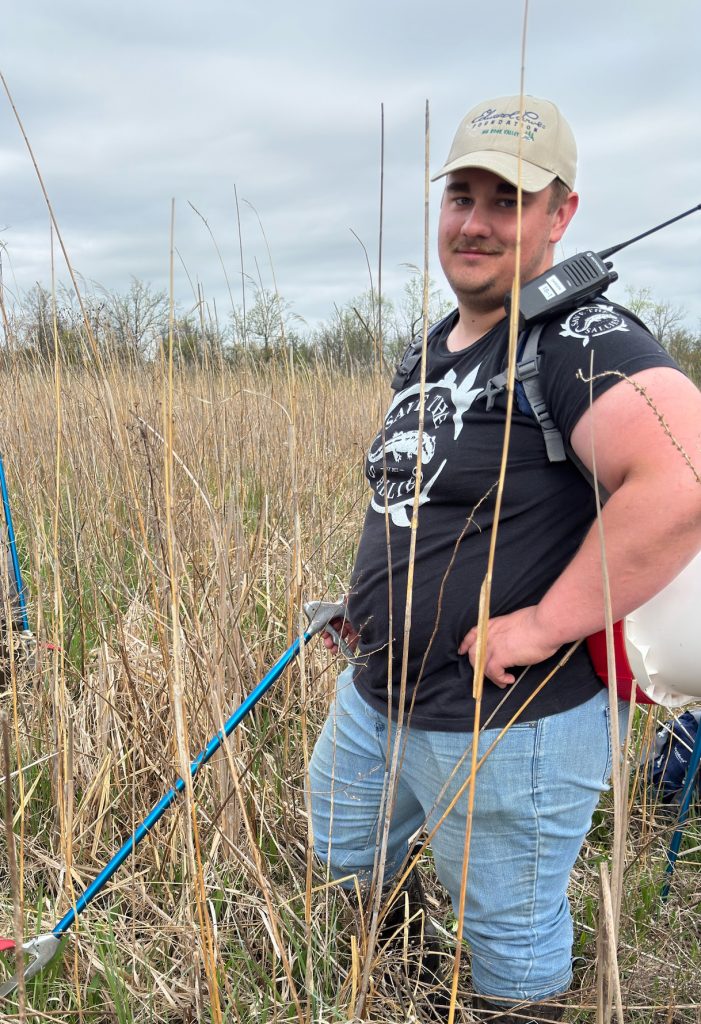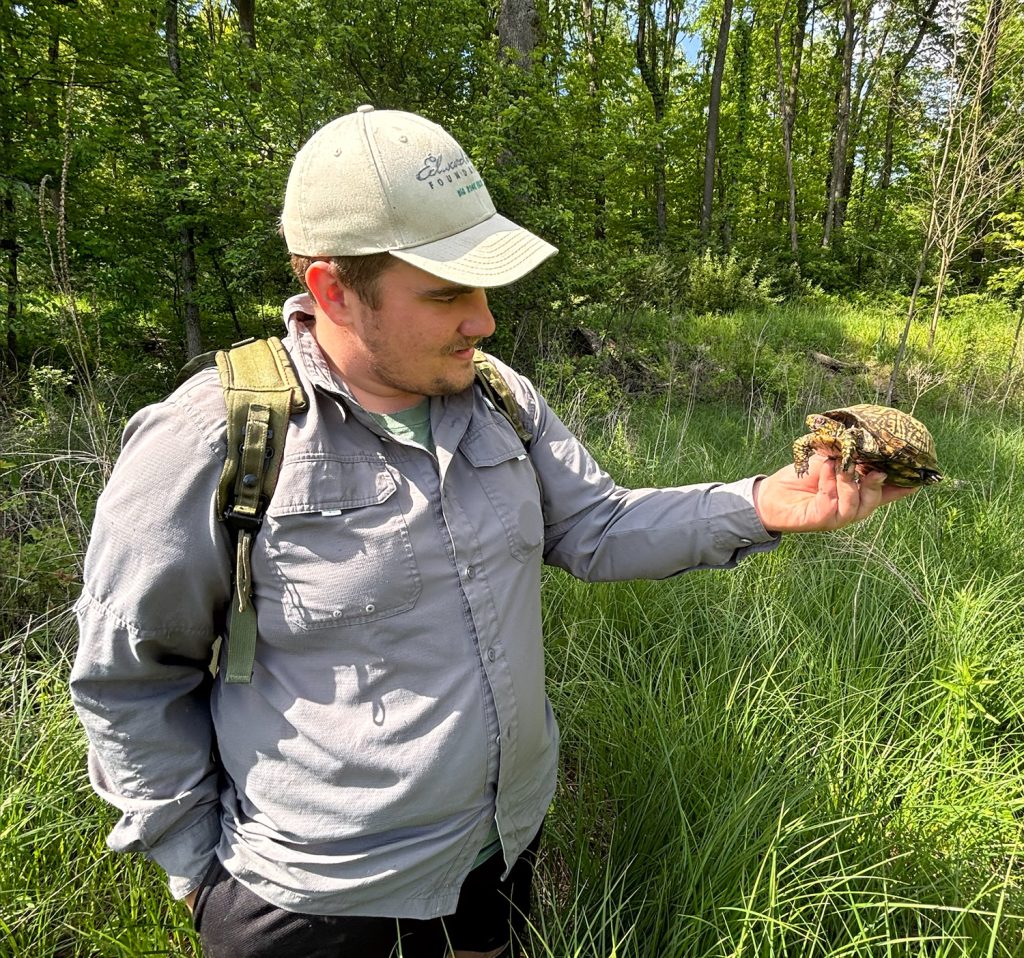For the past several years the foundation has offered a seasonal conservation steward program to accelerate growth for future natural resources professionals. Below, Dawson Porter, a student at Michigan State University, discusses his experience from this summer.
By Dawson Porter

My time at the Edward Lowe Foundation was an extraordinary experience, providing me with hands-on fieldwork, conservation research and professional growth. Over the course of the season, I participated in a wide range of activities, from brushcutting and herbicide application to laying cover boards and monitoring reptile populations. Each task offered unique challenges and learning opportunities that strengthened my skills and deepened my passion for wildlife conservation.
One of my most memorable experiences was participating in Snake Week. This annual event brings scientists and animal care experts from across the country to Big Rock Valley, the foundation’s 2,000-acre property in southwest Michigan, to survey its population of eastern massasauga rattlesnakes. The week kicks off with a meeting and meal that allows the team to prepare for the work ahead. Once in the field, we navigate the wetlands, fens and cattails to locate these cryptic and intelligent snakes. When a massasauga is detected, it is carefully handled, placed in a bag and brought to the foundation’s Eco Lab. There, it receives a tracking tag that assigns an individual identification number. After the researchers collect demographic and genetic data, the snakes are released back into the habitat in which they were found.
Participating in this work was exciting and rewarding — and gave me a deeper understanding of the detailed efforts required to protect a threatened species. Massasaugas play an important role in biodiversity because they help keep small mammal populations in check; however, their numbers are shrinking across the United States due to habitat loss and human persecution.

Another major component of my internship was removing invasive species. Although this work may not seem glamorous at first, it is incredibly satisfying to see the land respond to restoration efforts. Clearing invasive plants allows native vegetation to thrive and provides better habitats for wildlife. For example, when I started work at Big Rock Valley, one of its forested plots was completely choked by multiflora rose plants. After months of treating with the proper herbicide, we were able to eradicate the thick, spiney invasive and open the plot to allow sunlight to reach the forest floor, which will encourage native plants to return.
Throughout my time at the Edward Lowe Foundation, I also gained practical skills and valuable certifications, such as the Michigan Commercial Pesticide Applicator License and the S-130/190 Fire Training certifications. These opportunities have provided me with a competitive edge and greater confidence as I pursue a career in conservation. Beyond professional growth, the experience offered a supportive and collaborative environment, giving me the chance to learn from experts in the field and connect with people who share my passion for protecting wildlife.
Living and working on site at Big Rock Valley added another layer of enjoyment. The property offers exceptional housing, stunning landscapes and a welcoming community. Weekly events and educational talks enhanced my understanding of conservation challenges and solutions.
In conclusion, my time at the Edward Lowe Foundation was the most rewarding field season of my career. The experience reinforced my commitment to preserving wildlife habitats, supporting threatened species, and inspiring future generations to connect with nature.